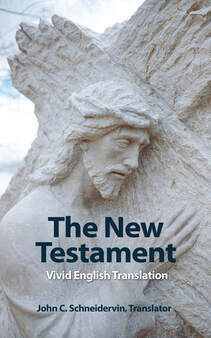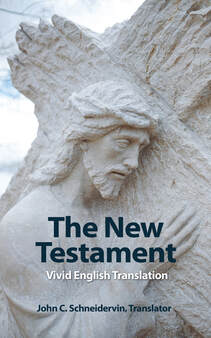The Book Of
First Peter
The contents of this page has been removed because it has been published in The New Testament – Vivid English Translation, which can be purchased as an ebook and a paperback at: https://www.amazon.com/New-Testament-Vivid-English-Translation/dp/B09914FYQN/ref=sr_1_3?dchild=1&keywords=john+schneidervin&qid=1627911478&sr=8-3
Return to The Vivid English Translation Of The New Testament page





